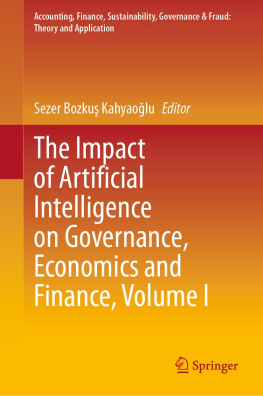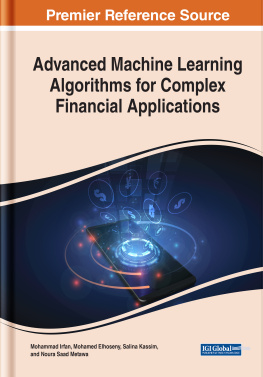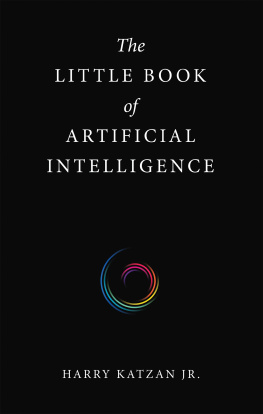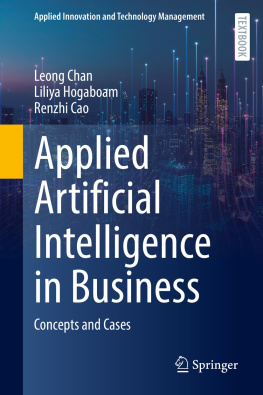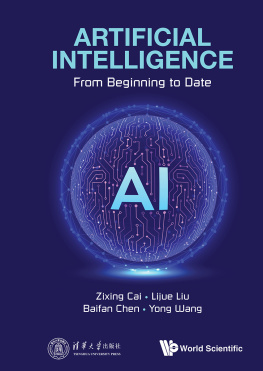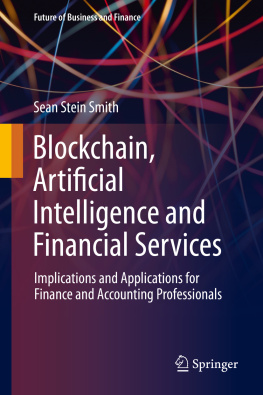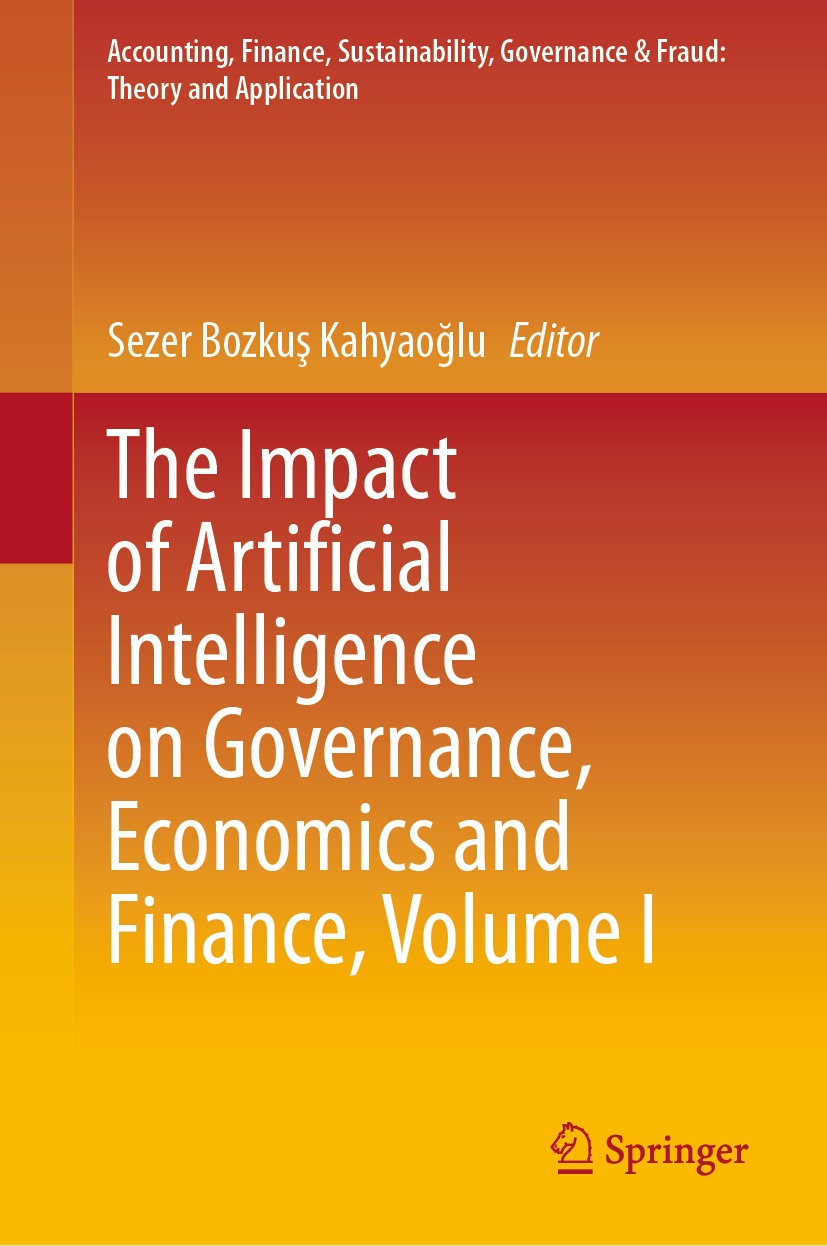Accounting, Finance, Sustainability, Governance & Fraud: Theory and Application
Series Editor
Kymet Tunca alyurt
Iktisadi ve Idari Bilimler Fakultes, Trakya University Balkan Yerleskesi, Edirne, Turkey
This Scopus indexed series acts as a forum for book publications on current research arising from debates about key topics that have emerged from global economic crises during the past several years. The importance of governance and the will to deal with corruption, fraud, and bad practice, are themes featured in volumes published in the series. These topics are not only of concern to businesses and their investors, but also to governments and supranational organizations, such as the United Nations and the European Union. Accounting, Finance, Sustainability, Governance & Fraud: Theory and Application takes on a distinctive perspective to explore crucial issues that currently have little or no coverage. Thus the series integrates both theoretical developments and practical experiences to feature themes that are topical, or are deemed to become topical within a short time. The series welcomes interdisciplinary research covering the topics of accounting, auditing, governance, and fraud.
More information about this series at http://www.springer.com/series/13615
Editor
Sezer Bozku Kahyaolu
The Impact of Artificial Intelligence on Governance, Economics and Finance, Volume I
1st ed. 2021

Logo of the publisher
Editor
Sezer Bozku Kahyaolu
Izmir Bakircay University, Izmir, Turkey
ISSN 2509-7873 e-ISSN 2509-7881
Accounting, Finance, Sustainability, Governance & Fraud: Theory and Application
ISBN 978-981-33-6810-1 e-ISBN 978-981-33-6811-8
https://doi.org/10.1007/978-981-33-6811-8
The Editor(s) (if applicable) and The Author(s), under exclusive license to Springer Nature Singapore Pte Ltd. 2021
This work is subject to copyright. All rights are solely and exclusively licensed by the Publisher, whether the whole or part of the material is concerned, specifically the rights of translation, reprinting, reuse of illustrations, recitation, broadcasting, reproduction on microfilms or in any other physical way, and transmission or information storage and retrieval, electronic adaptation, computer software, or by similar or dissimilar methodology now known or hereafter developed.
The use of general descriptive names, registered names, trademarks, service marks, etc. in this publication does not imply, even in the absence of a specific statement, that such names are exempt from the relevant protective laws and regulations and therefore free for general use.
The publisher, the authors and the editors are safe to assume that the advice and information in this book are believed to be true and accurate at the date of publication. Neither the publisher nor the authors or the editors give a warranty, expressed or implied, with respect to the material contained herein or for any errors or omissions that may have been made. The publisher remains neutral with regard to jurisdictional claims in published maps and institutional affiliations.
This Springer imprint is published by the registered company Springer Nature Singapore Pte Ltd.
The registered company address is: 152 Beach Road, #21-01/04 Gateway East, Singapore 189721, Singapore
Foreword
We are living in a very fast era which is called as the information age. This speed is mostly due to the fast advancement of technologies, especially information and communication technologies. Todays business life, organizations, and business rules are much different than previous decades. Information asymmetry is significantly reduced. E-commerce and social media have changed almost all aspects of business. On the other hand, people are impatient and cannot tolerate waiting for products or services or even for answers. Especially Gen Z, considered as digital natives who were born into digital technologies, from earliest youth, have been exposed to the internet, social networks, and mobile systems are joining the workforce, business life, and becoming customers and consumers and have much different standards and expectations than X and Y generations.
These technological advancements and increasing customer expectations are also changing the business life and companies are trying to cope with all these changes. Most importantly, faster decision-making is needed. The business world and businesses are chasing faster, better, more intelligent systems in order to cope with current conditions and to meet with ever-increasing customer expectations. Since the 1980s, computer science, computer engineering, software engineering, and computer programming disciplines were working on making systems more functional and smarter. Especially during the last 2 decades with the proliferation of internet and social media almost all parts of the population started to use computers and we transformed our daily lives and activities into digital platforms. It has made significant changes in peoples and corporations perspectives on information and communication technologies (ICT). Companies developed all kinds of applications, systems, and digital platforms to address these increasing needs and to keep or increase their customer base. Governments were not an exception. They also worked on e-government and digitalization of all kinds of services to meet with expectations of citizens with more efficiency. Today we see all kinds of digital platforms, services, and products and one can easily survive with internet connection and basic ICT skills.
Our next goal will be to make these systems more intelligent, more competitive, and more human-like. This brings us to Artificial Intelligence (AI). AI has been a subject of science for a long time but because of technological insufficiencies and other reasons it developed very slow up until recently. Thanks to new programming languages, developments in software engineering, developments in hardware areas, and availability of big data sets, currently AI is developing much faster. With AI computers will not only perform ordinary computer functions but they will also think similar to humans, learn, create new knowledge, and act similar to human decision-makers. This might result in replacement of many jobs with intelligent systems or AI.
Businesses are experiencing very heavy competition, and they need to deal with conscious, and more demanding customers with high expectations. They demand faster, better, customized solutions. This requires companies to develop more intelligent systems with much higher capacity. AI will be the answer for this requirement. Previously, computers and IS were optional, but today they are a must for survival. If a company needs to be more competitive then the solution again is not a regular IT or IS. It is intelligent system which can provide higher performance and significantly better complete solutions.
Today, we are talking digitization, digitalization, and digital transformation in businesses. Especially the last step, digital transformation requires the utilization of third platform technologies which are closely coupled with AI. Today, data is the most valuable resource for any company and companies who know how to use big data will have a competitive advantage. In order to capture, process, and transform data into information and knowledge again we need support from AI.

